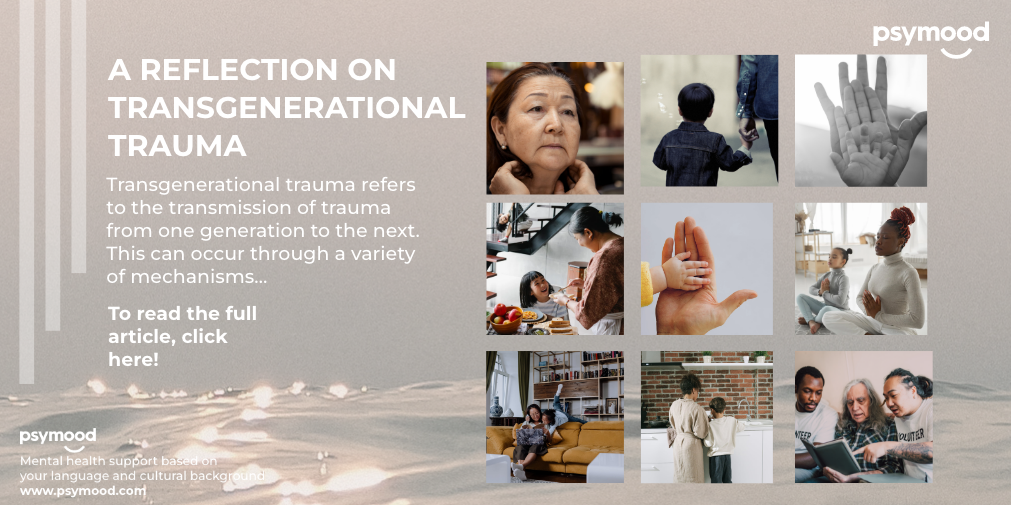A Reflection on Transgenerational Trauma
Modern media began shedding light towards narratives and ideas that we, as a society, direly need to examine. The issue of transgenerational trauma is grand and delicate, affecting humanity as a whole. This begs the question: how should we face it as individuals?
For starters, transgenerational trauma refers to the transmission of trauma from one generation to the next. This can occur through a variety of mechanisms, such as through the telling of traumatic stories, the modelling of coping mechanisms, or the passing on of trauma-related health conditions.
Understanding this insidious issue is the first step towards healing from it, so I felt it important to share resonating stories for you to check out.
Works about transgenerational trauma
“The Intergenerational Cycle of Trauma”
Sarah begins to uncover the traumatic events that have affected her family for generations. Through therapy and research, she discovers that her ancestors were survivors of a devastating war and that the trauma has been passed down through the generations in the form of anxiety and depression. As she begins to understand and process her own trauma, she also works to break the cycle and heal her family.
“Passing Down the Pain”
A man named Michael who grew up in a household where his parents were constantly fighting and his father was physically abusive. As he becomes a father himself, he realizes that he is repeating the same patterns of behavior and that he has inherited his own father’s trauma. He seeks help and begins to understand how his own childhood experiences have shaped him, and how he can work to break the cycle and create a healthier family dynamic for his own children.
“Healing the Wounds of War”
This is a story about a family of refugees who fled their war-torn country and settled in a new land. Despite building a new life, the trauma of the war continues to haunt them and affects the relationships within the family. Through therapy and community support, they begin to process their trauma and learn how to heal and move forward together as a family.
You don’t have to wait to read any of these to gain more practical knowledge on this matter. Here’s a few tried-and-true approaches.
Dealing with transgenerational trauma
- Education and awareness: Understanding the concept of generational trauma and how it can manifest in one’s family or community can be the first step in addressing it.
- Therapy: Both individual and family therapy can help people work through their traumatic experiences and learn new coping mechanisms.
- Community support: Joining a support group or participating in community-based initiatives can provide a sense of belonging and validation, and can also help people find new ways to cope with their trauma.
- Cultural healing: For some communities, healing may involve reconnecting with one’s cultural heritage and practices, which can provide a sense of identity and resilience.
- Self-care: Taking care of oneself physically, mentally and emotionally is important for individuals to build resilience and deal with the trauma.
It’s important to note that healing from transgenerational trauma can be a long-term and ongoing process, and it may require the support of multiple professionals, friends, and family members.
PsyMood is a digital tool designed to help you find the support you need in the language that you are most comfortable with. PsyMood considers cultural background, geographical location, interests, and personal needs, amongst other factors, to pair you with service providers for either online or in-person therapy sessions.


.png)
.png)
.png)
Recent Comments